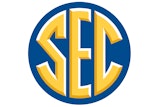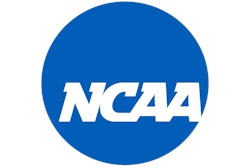
King University in Tennessee failed to monitor its men's and women's volleyball programs when the former volleyball head coach violated ethical conduct rules by providing impermissible benefits to two men's volleyball student-athletes and one women's volleyball student-athlete, according to an agreement released by the Division II Committee on Infractions. Additionally, the head coach arranged for student-athletes to provide impermissible meals to prospects during their unofficial visits.
The school, head coach and enforcement staff agreed that violations occurred when the head coach gave two men's volleyball student-athletes and one women's volleyball student-athlete a total of $4,500 via cash, check and Venmo. Specifically, after the head coach learned that the student-athletes' athletics scholarships were less than what he promised each of them during their recruitment, the head coach used personal funds to remedy the deficits. The head coach's knowing provision of impermissible benefits violated ethical conduct rules. As a result of the impermissible benefits, the women's volleyball student-athlete competed in eight contests while ineligible, and one men's volleyball student-athlete competed in 48 contests while ineligible.
The school, head coach and enforcement staff also agreed that the head coach arranged for six student-athletes to provide at least 11 prospects with impermissible meals during their unofficial visits and reimbursed the student-athletes with personal funds. Several other student-athletes were also in attendance and received free meals, too. Although the meals could have been provided permissibly, the head coach's use of personal rather than institutional funds resulted in more than $750 in impermissible benefits. As a result of the impermissible benefits, six men's and women's volleyball student-athletes competed in 177 contests while ineligible.
Due to his personal involvement in providing impermissible benefits, the school, head coach and enforcement staff agreed that the head coach failed to promote an atmosphere of compliance. Finally, the school and enforcement staff agreed that King failed to adequately monitor its men's and women's volleyball programs and establish adequate compliance systems — particularly with regard to unofficial visits and benefits.
This case was processed through the negotiated resolution process. The process was used instead of a formal hearing or summary disposition because the university, enforcement staff and former head coach agreed on the violations and the penalties. The Division II Committee on Infractions reviewed the case to determine whether the resolution was in the best interests of the Association and whether the agreed-upon penalties were reasonable.
The school and enforcement staff agreed on the following penalties and corrective measures:
- Three years of probation, including:
- Independent external audits of the school's compliance program during the first and third years of the probationary period.
- Annual NCAA Regional Rules Seminar attendance by the school's compliance director.
- A $2,500 fine.
- A reduction in men's volleyball scholarships during the 2025-26 academic year by 0.07 and a reduction in women's volleyball scholarships during the 2024-25 academic year by 0.03.
- A prohibition against any unofficial visits in men's and women's volleyball for one year.
- A three-year show-cause order for the former head coach. During the first two years of the show-cause order, any employing member school shall restrict the coach from any athletically related position. If the coach becomes employed during the third year of his show-cause order, the NCAA member school employing him must suspend him from the first six dates of competition.
- A vacation of all team and individual records in which the student-athletes competed while ineligible.
Members of the Committee on Infractions are drawn from the NCAA membership and members of the public. The members of the panel who reviewed this case are Amber Feldman, deputy commissioner/senior woman administrator at the Mid-America Intercollegiate Athletics Association; David Hansburg, director of athletics at Colorado School of Mines; Richard Loosbrock, Division II Committee on Infractions chair and faculty athletics representative at Adams State; Brooke Parsons, attorney; Leslie Schuemann, deputy commissioner/senior woman administrator at the Great Midwest Athletic Conference; and Jason Sobolik, assistant athletics director for compliance and student services at Minnesota State University Moorhead.




































